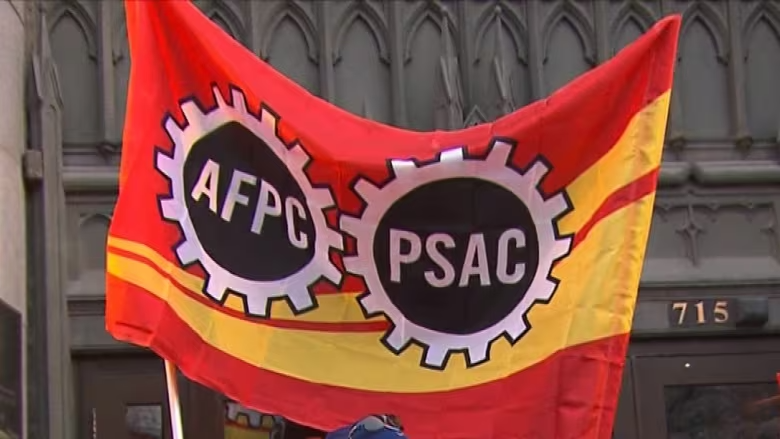Federal public service strike could affect 600 workers in the North

In the event of a strike, some employees will be deemed essential
Hundreds of federal public servants in the North could walk off the job as part of a Canada-wide labour disruption in the next 58 days.
There are about 600 federal employees across Nunavut, N.W.T. and the Yukon who are now in a legal position to strike after the union representing them voted in favour of a strike mandate.
Chris Aylward, the national president of the Public Service Alliance of Canada (PSAC), announced Wednesday morning the union representing more than 120,000 federal employees across Canada had voted in favour of the strike mandate as talks continue this week.
The workers poised to strike come from four different bargaining units: program and administrative services (which is the largest bargaining unit in the core federal public service), operational services, technical services and education and library services.
In a statement Wednesday afternoon, a spokesperson for Treasury Board of Canada President Mona Fortier, the employer of most federal public servants, said their goal is to reach a deal at the bargaining table as soon as possible, and that “significant headway” has been made in the last week.
The union did not say when the strike could happen but legally, they say they have until June 10 to call one.
What would a disruption mean?
Unions and employers generally have to give 72 hours notice under the labour code to start a strike or lockout within 60 days of entering a legal strike position. PSAC has said it wouldn’t necessarily go straight into a national strike, instead working to rule or conducting more targetted or rolling strikes first.
Lorraine Rousseau, the regional executive vice president of PSAC-North, said if there is a strike, some of the 600 employees in the North will be deemed essential — meaning they might be placed on call or called in to work shorter hours.
Rousseau said she couldn’t say which jobs would be deemed essential to protect the identity of people in small communities who work those jobs. She said the federal departments would communicate service changes to the public.
Rousseau said the public might feel the effects of a strike or a lockout the most at Services Canada, Indigenous and Northern Affairs Canada, and at RCMP detachments.
“A lot of the administration at the RCMP is completed by detachment clerks, so that’s the intake of files, doing transcriptions, getting things ready for court,” she explained. “If there’s only one essential worker, whereas there used to be five people working there, that’s going to affect the court system, the other workers, and the public.”
The sticking point
The strike mandate is the result of a disagreement between the union and the Treasury Board over proposed wage increases. The union says the increases are outstripped by the rate of inflation.
Rousseau said members are making between $40,000 and $65,000 a year, and federal employees in the North are “feeling the squeeze especially bad.” Some people are being forced to decide whether to eat or to pay their electricity bill,” she said.
The Treasury Board last shared an offer to increase wages by 2.06 per cent on average over four years, up from an average of 1.7 per cent per year. The union’s last public proposal was 4.5 per cent for 2021, 2022, and 2023.
A different bargaining group of about 35,000 PSAC workers at the Canada Revenue Agency voted in favour of strike action Friday ahead of mediation talks set to take place later this month.
Related stories from around the North:
Canada: Labour shortage has Fort Smith businesses struggling to keep doors open, CBC News



